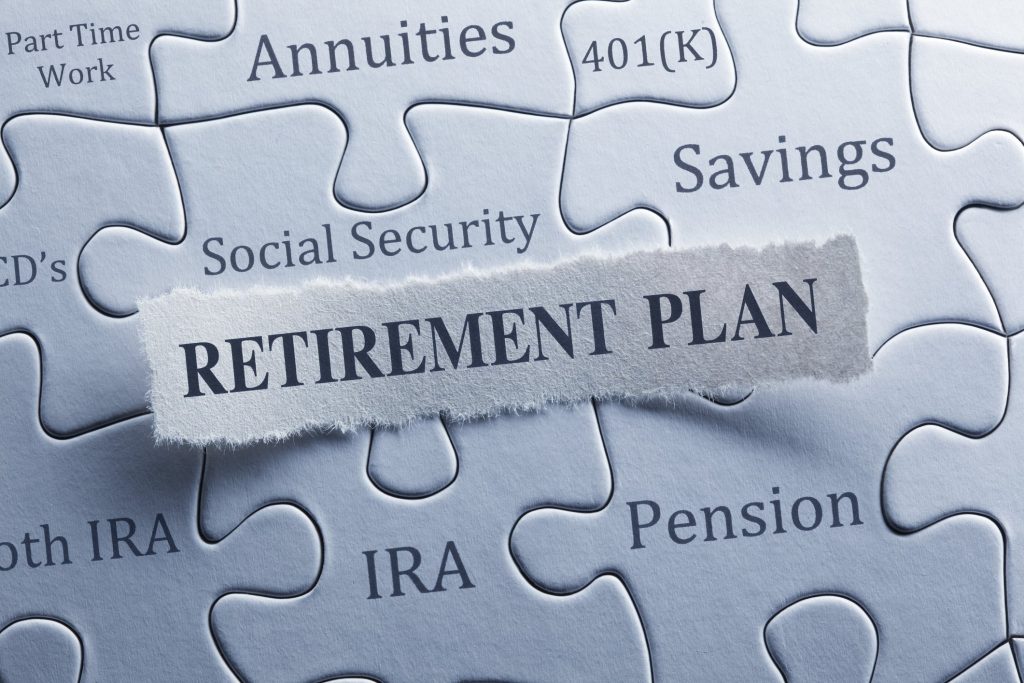
Over the course of your life, you have probably acquired several different retirement accounts, and you have likely considered many kinds of retirement strategies. The key now, if you have recently retired or you are about to retire, is to start putting those different pieces together to form a complete picture of what you have and what you may need going forward.
401(k)
This is the most common kind of retirement account. It’s held jointly between you and your employer and contains contributions from you both, and it consists of stocks, bonds, mutual funds, and other assets. The contents of a 401(k) are not taxed until they are withdrawn and taken directly out of your paycheck, which may be useful depending on your financial situation.
You can withdraw your money from a 401(k) account at any time, but if you withdraw before you are age 59 ½, the withdrawal is subject to a 10% penalty tax in addition to your normal tax obligation at the time of withdrawal.[1]
Traditional IRA
IRA stands for Individual Retirement Account. You can open an IRA through a financial organization yourself, and you can decide when and how you want to submit to them. There are yearly limits on IRA accounts, but how much you contribute under those limits is up to you. The time at which you submit your contributions is also up to you. Like a traditional 401(k), contributions to a traditional IRA are tax-deferred, meaning you pay taxes when you withdraw the funds.[2]
Roth 401(k)
A Roth 401(k) is like a 401(k) in that it is a joint account held by the employer and the employee, and contributions to this account are regular and taken from your paycheck. The key difference between a traditional 401(k) and a Roth 401(k) is that the Roth version is taxed when the funds are contributed. When you withdraw the funds when you retire, you will not have to pay taxes on them.[3]
Roth IRA
A Roth IRA is like a Traditional IRA in some ways. It is something you open individually through a financial institution and has yearly limits on contributions. It has the same flexible options as a traditional IRA, but the difference is that your contributions to a Roth IRA are taxed as they enter into the account, but they are not taxed on withdrawal.
Pension
If your employer offers a pension, this means that they promise to provide a certain monthly income to a retired employee for life. There are various factors that determine the amount that the employee will receive, but it is generally determined by your final average salary and the number of years you worked at the company or institution.[4]
Conclusion
As you can tell, taxes are a major part of retirement planning, and often making the right choice for your retirement involves being savvy about which tax-advantaged retirement savings vehicles to use. If you’re looking for advice on how to manage your accounts and which accounts might be right for you, contact us for a complimentary review of your finances.



